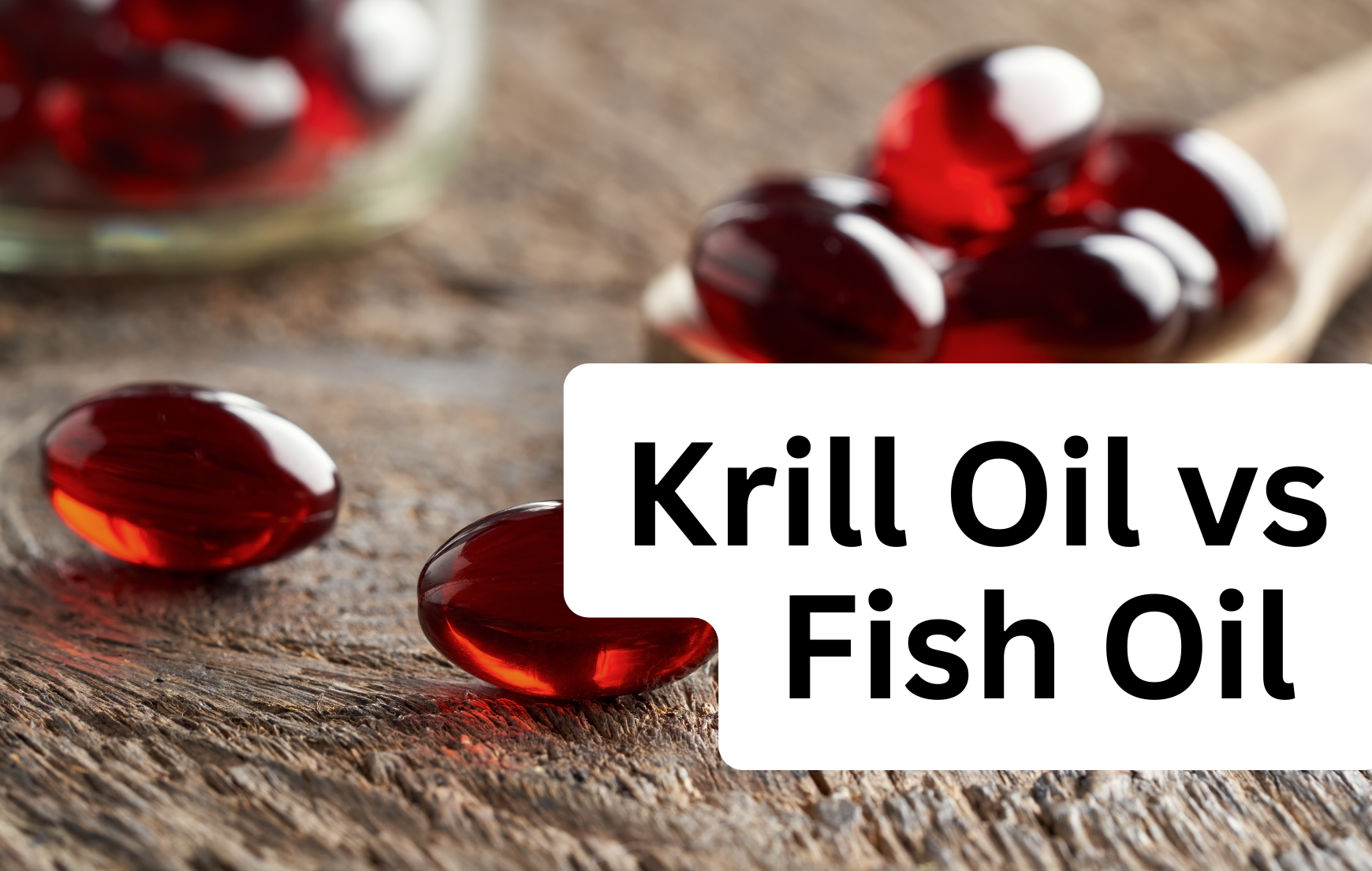With the ever-increasing focus on healthy living and dietary supplements, omega-3 fatty acids have received significant attention for their numerous health benefits.
Two popular sources of these essential nutrients are fish oil and krill oil. This article will compare these sources, their benefits, and their drawbacks to help readers make an informed decision about which supplement is most suitable for their needs.
What is Fish Oil?
Fish oil originates from fatty or oily fish, such as salmon, tuna, or mackerel. It is rich in omega-3 fatty acids, specifically eicosapentaenoic acid (EPA) and docosahexaenoic acid (DHA). These are the most crucial types of omega-3 fatty acids, mainly because the body doesn’t produce them naturally.
Fish oil is commonly used as a supplement to help lower triglycerides, reduce inflammation, improve heart health, and support mental health. Studies have also linked the intake of fish oil supplements with improved eye health, better brain function during aging, and even reduced symptoms of certain mental disorders.
However, as beneficial as fish oil can be, it has potential side effects. These include unpleasant taste, bad breath, heartburn, nausea, gastrointestinal discomfort, and loose stools. Furthermore, fish oil might interact with specific medications such as anticoagulants and blood pressure drugs.
What is Krill Oil?
Krill oil, on the other hand, is derived from a small crustacean known as krill, which are abundant in the Antarctic Ocean. Like fish oil, krill oil is rich in EPA and DHA, but it also contains a carotenoid antioxidant called astaxanthin, which is not found in fish oil.
Benefits of Krill Oil
Krill oil, due to its composition, offers numerous health benefits. Its omega-3 fatty acids contribute to heart health by reducing ‘bad’ LDL cholesterol and increasing ‘good’ HDL cholesterol. They can also lower blood pressure and reduce the formation of arterial plaques.
Additionally, the EPA and DHA in krill oil are beneficial for brain health. They support cognitive function, enhance memory and learning, and may even help alleviate symptoms of depression and other mental health disorders.
Krill oil also supports joint health by reducing inflammation and pain associated with conditions such as arthritis. The astaxanthin in krill oil enhances this anti-inflammatory effect and also protects the eyes from age-related diseases.
Despite its numerous benefits, krill oil can also cause side effects, similar to fish oil. These include bad breath, heartburn, stomach discomfort, and loose stools. It is also important to note that those with a seafood allergy should avoid krill oil.
Choosing the Best Krill Oil
When selecting a krill oil supplement, look for products with high levels of EPA and DHA. The presence of astaxanthin is also a good sign. However, ensure the product is tested for purity to avoid harmful contaminants.

Consider reputable brands that prioritize sustainable sourcing such as Transparent Labs Krill Oil (pictured above). For example, the Marine Stewardship Council (MSC) certifies several krill oil supplements. You can buy these products from health food stores, pharmacies, or online vendors.
Comparative Analysis: Krill Oil vs Fish Oil
When comparing krill oil and fish oil, a few factors stand out.
Firstly, the bioavailability, or how well the body can absorb and utilize the nutrients, differs between the two. The omega-3s in krill oil are in phospholipid form, which the body can absorb more readily than the triglyceride form found in fish oil.
Both oils provide potent concentrations of omega-3s, but the additional astaxanthin in krill oil enhances its antioxidant properties.
From an environmental perspective, krill oil is considered more sustainable because krill are abundant and have less exposure to pollutants compared to fish. However, it’s important to choose products from companies that follow sustainable and eco-friendly practices.
Research Findings
Several studies have compared krill oil and fish oil. Some research suggests that krill oil may lead to higher absorption of omega-3s. Another study found that both supplements were effective in reducing cholesterol levels, but krill oil was more potent in lowering blood glucose.

However, more research is needed to establish the superiority of one supplement over the other. The choice between krill oil and fish oil often boils down to individual preference, budget, and dietary restrictions.
Considerations for Consumers
Before starting any supplement, it’s important to consider potential allergies and interactions with other medications. If you are allergic to seafood, both fish oil and krill oil may trigger a reaction.
Furthermore, both supplements can interact with anticoagulant and antiplatelet drugs, leading to increased bleeding risks.
Always choose a high-quality supplement, and follow the recommended dosage. It’s also advisable to consult a healthcare professional before starting any new supplement regimen.
Conclusion
In summary, both krill oil and fish oil offer significant health benefits due to their high omega-3 fatty acid content. The choice between the two will depend on various factors including individual health goals, budget, and sustainability concerns. Ultimately, both options are valid methods of increasing your intake of beneficial omega-3 fatty acids.
Is krill oil better than fish oil for omega-3 supplementation?
Both krill oil and fish oil are excellent sources of omega-3 fatty acids, particularly EPA and DHA. Krill oil may have better bioavailability, meaning your body may absorb and utilize its omega-3s more efficiently. It also contains astaxanthin, a potent antioxidant. However, more research is needed to definitively establish if one is superior to the other.
Can I take krill oil or fish oil if I have a seafood allergy?
It’s important to consult your healthcare provider before taking fish oil or krill oil if you have a seafood allergy. Some people with seafood allergies may tolerate these supplements, but there’s still a risk of an allergic reaction.
Do krill oil and fish oil have any side effects?
Yes, both can cause side effects, though these are usually mild. Common side effects include bad breath, heartburn, upset stomach, and loose stools.

You must be logged in to post a comment.